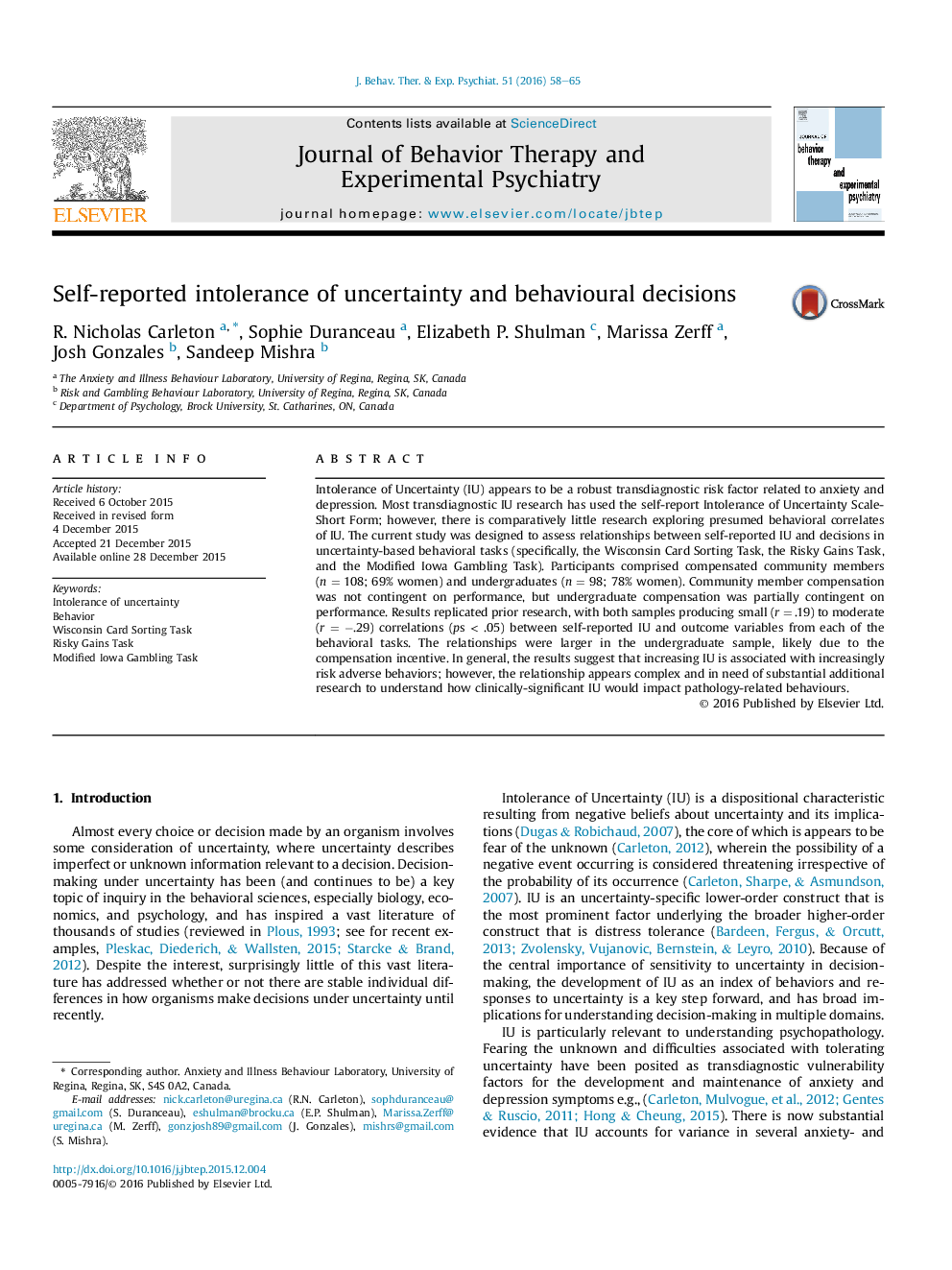| Article ID | Journal | Published Year | Pages | File Type |
|---|---|---|---|---|
| 910267 | Journal of Behavior Therapy and Experimental Psychiatry | 2016 | 8 Pages |
•Self-reported IU had small to moderate relationships with behaviour.•Perceived threat and risk appear to impact relationships between IU and behaviour.•Ecological validity and measurement sensitivity for IU warrant more attention.
Intolerance of Uncertainty (IU) appears to be a robust transdiagnostic risk factor related to anxiety and depression. Most transdiagnostic IU research has used the self-report Intolerance of Uncertainty Scale-Short Form; however, there is comparatively little research exploring presumed behavioral correlates of IU. The current study was designed to assess relationships between self-reported IU and decisions in uncertainty-based behavioral tasks (specifically, the Wisconsin Card Sorting Task, the Risky Gains Task, and the Modified Iowa Gambling Task). Participants comprised compensated community members (n = 108; 69% women) and undergraduates (n = 98; 78% women). Community member compensation was not contingent on performance, but undergraduate compensation was partially contingent on performance. Results replicated prior research, with both samples producing small (r = .19) to moderate (r = −.29) correlations (ps < .05) between self-reported IU and outcome variables from each of the behavioral tasks. The relationships were larger in the undergraduate sample, likely due to the compensation incentive. In general, the results suggest that increasing IU is associated with increasingly risk adverse behaviors; however, the relationship appears complex and in need of substantial additional research to understand how clinically-significant IU would impact pathology-related behaviours.
